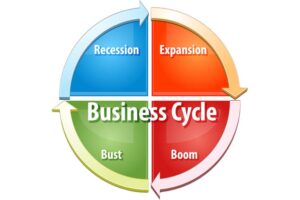Building wealth in America is a goal many people aspire to achieve, but it requires careful planning, disciplined financial habits, and a long-term perspective. While there is no overnight formula for success, there are proven strategies that can help individuals accumulate wealth and secure financial independence. This guide explores key steps to building wealth, including saving, investing, and creating multiple income streams.
The Power of Budgeting and Saving
Wealth-building starts with a solid financial foundation, and budgeting is the first crucial step. A well-structured budget helps track income, expenses, and savings goals. Implementing the 50/30/20 rule, where 50% of income goes to necessities, 30% to discretionary spending, and 20% to savings and investments, is an effective method for managing finances.
Emergency Funds and Smart Savings
An emergency fund acts as a financial cushion, preventing unexpected expenses from derailing wealth-building efforts. Experts recommend setting aside at least three to six months’ worth of living expenses in a high-yield savings account. This ensures financial stability in the face of job loss, medical emergencies, or other unforeseen circumstances.
Investing: The Key to Wealth Accumulation
Investing is essential for growing wealth over time. Keeping money in a savings account alone will not generate significant returns due to inflation. Instead, a diversified investment strategy can lead to substantial financial growth.
Stock Market Investments
The stock market remains one of the most effective ways to build wealth. Investing in index funds, mutual funds, or individual stocks provides long-term returns. Historically, the S&P 500 has delivered an average annual return of about 7-10% after inflation, making it a powerful tool for wealth creation.
Real Estate Investing
Real estate is another proven method to build wealth. Investing in rental properties, flipping houses, or purchasing real estate investment trusts (REITs) can generate passive income and property appreciation. Owning real estate provides tax advantages, such as mortgage interest deductions and depreciation benefits.
Creating Multiple Streams of Income
Relying solely on a single source of income can be risky. Building multiple income streams provides financial security and accelerates wealth accumulation.
Side Hustles and Freelancing
The gig economy has opened opportunities for individuals to earn extra income through freelancing, consulting, or starting online businesses. Platforms like Upwork, Fiverr, and Etsy allow people to monetize their skills and creativity.

Passive Income Sources
Investing in dividend-paying stocks, rental properties, peer-to-peer lending, or creating digital products (such as e-books and online courses) can generate passive income. Passive income allows wealth to grow without requiring constant active work.
Entrepreneurship: A Path to Financial Independence
Starting a business can be one of the fastest ways to build wealth. Many of America’s wealthiest individuals are entrepreneurs who built companies that provided value to millions of people.
Scaling a Business for Long-Term Wealth
Entrepreneurs should focus on scalability, automation, and reinvesting profits to expand their businesses. By building a sustainable business model, individuals can create generational wealth and financial independence.
The Role of Smart Debt Management
Debt can either be a wealth-building tool or a financial burden. Managing debt wisely ensures that it works in favor of wealth creation.
Good Debt vs. Bad Debt
- Good Debt: Used for investments that appreciate in value, such as real estate, education, or business expansion.
- Bad Debt: High-interest debt, such as credit card balances, that does not contribute to financial growth.
Paying off high-interest debts quickly while leveraging low-interest loans for productive investments can improve financial health.
The Importance of Tax Optimization
Understanding and utilizing tax-saving strategies can significantly impact wealth accumulation.
Retirement Accounts and Tax Benefits
- 401(k) and IRA accounts offer tax-deferred or tax-free growth, depending on the type of account.
- Health Savings Accounts (HSAs) provide tax advantages for medical expenses.
- Tax-loss harvesting can help reduce taxable investment income.
Consulting with a financial advisor or tax professional ensures individuals maximize their tax benefits while complying with regulations.
Consistency and Long-Term Mindset
Wealth-building is a marathon, not a sprint. Consistency, patience, and disciplined financial habits play a crucial role in achieving financial independence. Avoiding impulsive financial decisions, maintaining a long-term investment strategy, and continuously seeking financial education can make a significant difference.
Final Thoughts
Building wealth in America is achievable with the right strategies and commitment. By focusing on budgeting, saving, investing, generating multiple income streams, managing debt wisely, and optimizing taxes, individuals can secure financial freedom and create lasting wealth for future generations. Start today, stay consistent, and watch your wealth grow over time.





